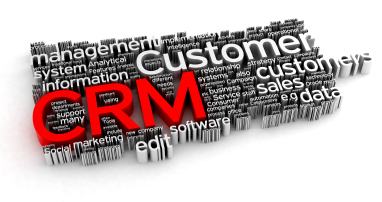When you work with CRM all day, you start to look at your interactions through CRM-tinted glasses. Sadly, much of what you see encapsulates the way CRM is either misused or ignored.
For instance:
Dear business that sends me too much junk: I appreciate that your email marketing system is integrated with the same list you use for direct mail, but I fail to understand why you insist on calling me “Christophe” in emails as you did in your direct mail. A 10-character field for “first name” probably seemed sufficient, but there are some of us who have longer names. You’re telling me you care more about the size of your data fields than you do about my name – and, if you actually knew me, you’d just say “Chris,” anyway.
While my mailbox and my in-box brings me daily reminders of this little CRM fail, I’ve never really done anything about it. But maybe I should.
If, as customers, we want businesses to be customer-centric, shouldn’t we as customers should start pointing out these failures where they happen?
It’s all well and good to point out how clueless businesses are, but the reality is that running a business is an all-consuming task at times. Maintaining the processes that make a business work may not leave time for managers to step out of their roles and try to see the business the way the customers do.
So, fellow customers: let’s start speaking up.
I’m not talking about offering complete re-designs of complex processes. No amount of well-intentioned advice will ever salvage Comcast’s customer service system, for example. What I’m suggesting is the mention of small things that can make a big difference.
It could be as simple as suggesting change to a website to make checkout faster, or a tip to improve personalization of customer communication, or expressing a desire to shift delivery times to coincide with periods of the day when your workforce is less busy and better prepared to receive merchandise.
The adoption of these little suggestions is a good thing for both you and for the business you buy from. For you, you get a better experience as a customer, and you get the good feeling that comes when you are heard and acknowledged. The business builds better relationships and can rightly claim to be moving in the direction of customer-centricty – and if what they’re doing makes you as a customer happier, it’s likely to make other customers happier as well. It also helps the business escape the foibles of failing to view its actions through the eyes of the customer.
And, if the business chooses to ignore your suggestion, that says something, too.
The other side of this is that we customers need to be much more vociferous when companies do the right thing for us. Sending an email or a letter when customer support does a great job, or when a sales person makes extra calls to round up the products we need in time, or when a clerk chases us down to give us our change, should become a regular response – it has an impact on the business that’s out of proportion to the action, but can also help reinforce that behavior across the entire business. And it also tends to reward the employee who went above and beyond the call of duty for us. Such employees embody the ideas of customer relationship management, and they deserve to be noticed – perhaps even more than the CRM screw-ups and failures that we tend to dwell on.






